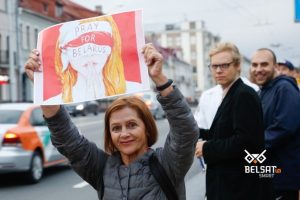
The White House (Moscow, Russian Federation) following President Yeltsin’s 4 October 1993 attack. © AP / Shutterstock
Dr Ben Noble is Lecturer in Russian Politics at UCL SSEES. He was awarded a British Academy Rising Star Engagement Award in 2019 for his project Parliaments Under Fire. He is on Twitter @Ben_H_Noble; the project’s account is @parlsunderfire.
This blog was first posted on 2 September on the British Academy website
In August 2019, Prime Minister Boris Johnson’s plan to prorogue Parliament caused an uproar. It’s not difficult to understand why. Insofar as the aim is to frustrate the ability of the legislature to debate and scrutinise the executive, then this appears to be an attack on the sovereignty of Parliament – the core of the United Kingdom’s constitutional system.
But Boris is not Charles I. Nor is he Boris Yeltsin, the Russian president, who violated the Russian constitution in September 1993 by dissolving the country’s legislature (the Supreme Soviet and the Congress of People’s Deputies). Parliamentarians in Russia responded by, among other things, barricading themselves in the parliament building – something that MPs in Westminster have threatened in response to prorogation. Frustrated by this legislative intransigence, Yeltsin eventually ordered tanks to fire on the White House, the seat of the Russian parliament in the heart of Moscow. In this battle between the executive and the legislature, the president won. This allowed Yeltsin to beef up the powers of the executive in the new Russian constitution – adopted in a referendum in December of the same year – leading many to label it ‘super-presidential’ and Yeltsin a dictator.
This wasn’t the first time a legislature was closed by the executive in Russian history. Tsar Nicholas II dissolved the first Imperial State Duma merely months after it opened in 1906, annoyed by the vocal way in which legislators pressured for sweeping social and political reform. Rather than barricade themselves in the Tauride Palace in St Petersburg, the seat of the imperial legislature, a number of Duma representatives assembled in Vyborg to write a declaration calling on the Russian people to stand up to authoritarian overreach. This didn’t work: most of the signatories to the declaration were imprisoned. But Boris Johnson is also not Tsar Nicholas II.
Authoritarian leaders and parliaments
These particular historical examples vary in how well they are known. Although we have lots of general and expert knowledge about the most prominent cases of attacks on legislative powers – especially when these bodies have been dissolved in defiance of the constitution – we know much less than we should about the full range of cases. This is particularly surprising given the resurgence of interest in political science in non-democratic politics – a trend sustained by the use of this work to help make sense of developments in recent US politics.
We have developed sophisticated theories that explain why authoritarian leaders set up and maintain legislative bodies. These theories suggest that parliaments in non-democracies are used to appease members of the political opposition; to share power between the ruler and other members of the elite; and to gather information on citizens’ concerns. We have, therefore, multiple insights into why these bodies are created. We know much less, however, about why they are dissolved.
Legislative closure might be puzzling to consider when starting from the conventional wisdom that legislatures in non-democracies are unimportant, entirely subservient bodies, filled with regime loyalists who simply ‘rubber stamp’ policy initiatives from the regime leadership without critical debate. Recent work – including my own – has challenged this ‘rubber stamp’ model of authoritarian legislative politics. But we still need to know much more.
Studying parliamentary closures and near misses
That’s where my new project, Parliaments Under Fire, comes in. The goal is to collect detailed information on moments of parliamentary closure. This is no mean feat. To make it possible, the project involves creating a network of political science scholars with country- and region-specific expertise. By drawing on, and pooling, this case-specific knowledge, the project combines the depth of area knowledge with the comparative political science tools that all members of the network share.
Currently, cross-national datasets only include information on whether a legislature existed in a particular year for a particular regime. That’s very basic, and some of this information is of questionable quality. My project will improve the detail we have publicly available of when legislatures have operated, while also improving our knowledge of the pathways leading to, and the actors involved in, parliamentary closures.
The project will also focus on ‘near misses’ – episodes when political leaders have attempted to close down legislatures but were prevented from doing so. PressOne example is from Ukraine in 1994, when President Leonid Kravchuk wanted to close down the Verkhovna Rada, but was prevented from doing so by the military. The executive intent was there, but the capacity was not. Beyond near misses, the project will also analyse moments of closure in the context of other, less extreme ways in which the powers of legislatures are weakened.
The project outputs should help provide a richer set of historical cases with which we can help navigate contemporary moments when legislatures come under pressure from executives. It should also help enrich existing theories of non-democratic parliaments, as moments of shutdown throw into sharp relief relations between actors that are usually shrouded in secrecy.
Boris Johnson is not a dictator. But his steps to hamper the constraining function of Parliament put him in awkward company. My project will allow us to understand in much greater depth why authoritarian leaders sometimes shutter their assemblies.
 Close
Close





